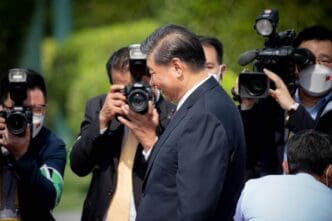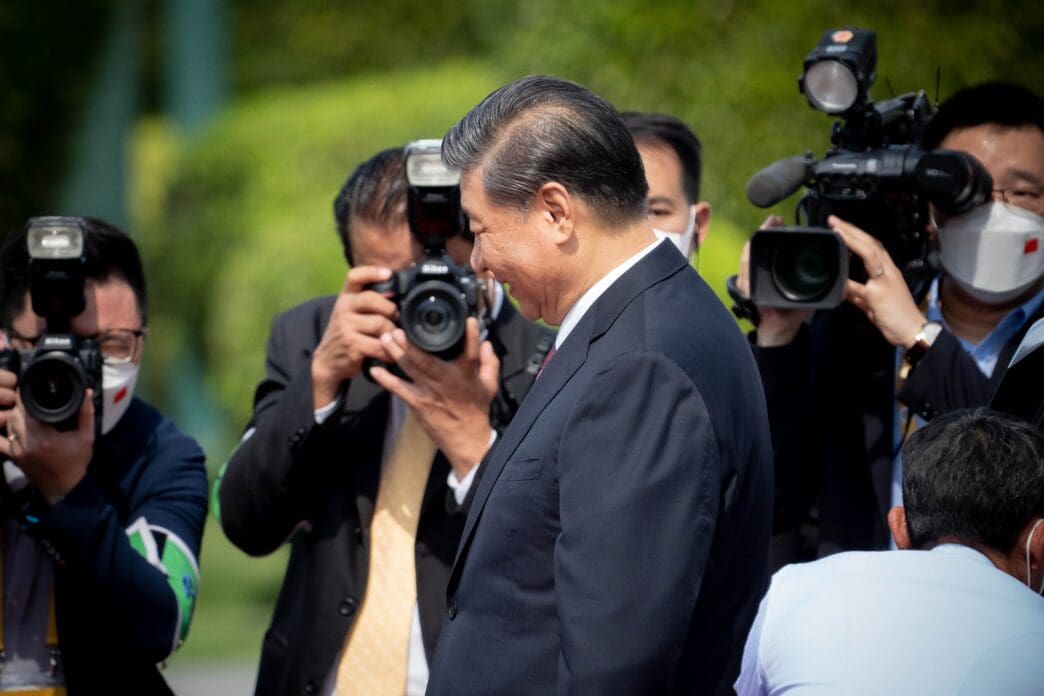Executive Summary
The Story So Far
Why This Matters
Who Thinks What?
Chinese President Xi Jinping called for the protection of the multilateral trading system and deeper economic cooperation at the Asia-Pacific Economic Cooperation (APEC) leaders’ summit in Gyeongju, South Korea, on Friday. His remarks followed a significant development on Thursday, where President Donald Trump and Xi mapped out a truce in their tariff dispute, agreeing on smaller US tariffs in exchange for China easing restrictions on rare earth minerals, despite Trump’s early departure from the summit.
China’s Stance on Global Trade
Addressing the assembled leaders, President Xi emphasized that “changes unseen in a century are accelerating across the world.” He urged nations to “pull together” during turbulent times, positioning China as a defender of global free trade amidst protectionist policies, particularly those advocated by the United States. Xi also stressed the importance of adhering to the principle of “extending, rather than breaking” supply chains. This statement comes after China had previously signaled potential restrictions on rare earth exports, a critical component for high-tech industries.
Despite China’s stated support for free trade, many Asian countries reportedly remain skeptical, citing Beijing’s growing dominance in manufacturing and exports, alongside a track record of utilizing export controls and other tools in past trade disputes.
US-China Tariff Truce and Trump’s Departure
The agreement between President Trump and President Xi, reached during a meeting in Busan on Thursday, marked a temporary de-escalation of the ongoing tariff friction. This meeting, the first formal talks between the two leaders since 2017, had largely overshadowed the lead-up to the APEC summit.
President Trump departed South Korea on Thursday after his meeting with Xi, missing the main APEC events. US Senior Official to APEC Casey Mace explained that Trump’s schedule “didn’t align perfectly” to allow his presence for all events. US Treasury Secretary Scott Bessent subsequently represented the US on Friday, affirming that American trade policy aims to ensure “each country operates on fair and reciprocal terms.”
Bilateral Engagements on the Sidelines
Beyond the US-China talks, President Xi engaged in other key bilateral meetings. He extended an invitation to Canadian Prime Minister Mark Carney to visit China, noting that ties were showing “a trend of positive development” despite existing tariff friction concerning Chinese steel and Canadian canola oil. Carney accepted the invitation, acknowledging a period of less engagement in recent years. Additionally, Xi held his first meeting with Japanese Prime Minister Sanae Takaichi.
Host Nation’s Perspective
South Korean President Lee Jae Myung, the summit’s host, underscored the Asia-Pacific region’s critical position within a rapidly evolving global economic order. He highlighted deepening global economic uncertainty and a decline in momentum for trade and investment. President Lee asserted that cooperation among APEC members offers a “clear solution” to current economic challenges, despite acknowledging that members may not always be on the same side. The APEC region collectively accounts for 50% of global trade and 61% of the world’s gross domestic product.
Summit Takeaways
The APEC summit highlighted the prevailing global economic uncertainties and the divergent approaches to trade policy, with China advocating for multilateralism and the US emphasizing fair and reciprocal terms. The US-China tariff truce provided a temporary easing of tensions, while host South Korea reiterated the critical importance of regional cooperation to navigate these complex challenges.








